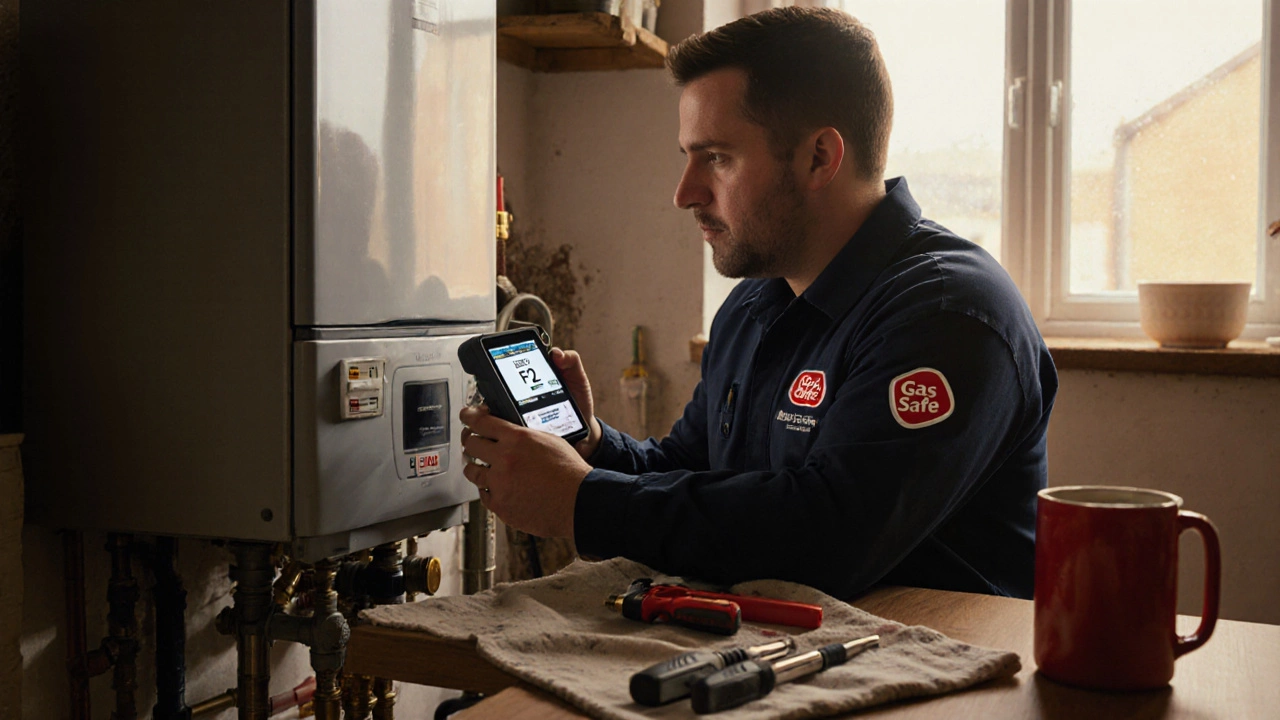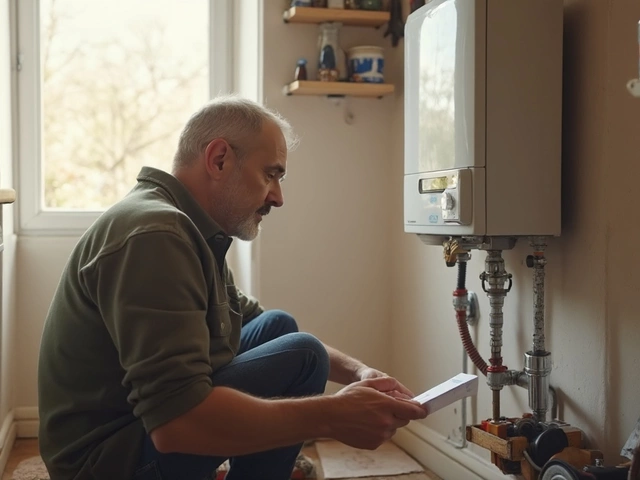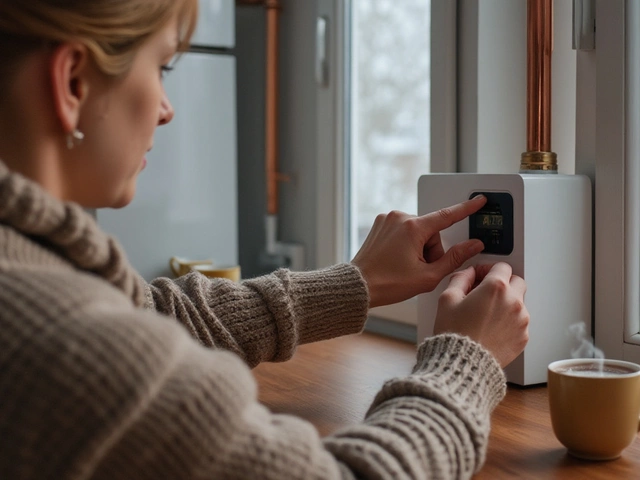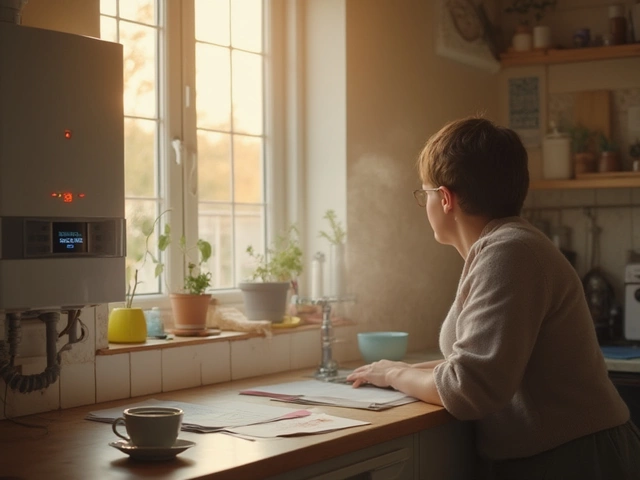Boiler Repair Cost Calculator
Boiler Repair Cost Estimator
When your boiler breaks down in the middle of winter, you don’t have time to figure out who to call. You just need heat. So you grab your phone and ask: can a plumber fix a boiler? The answer isn’t simple. It depends on what’s broken, where you live, and who’s holding the wrench.
Not all plumbers can fix boilers
In the UK, boilers are gas appliances. That means they’re regulated under the Gas Safety (Installation and Use) Regulations 1998. Only engineers registered with the Gas Safe Register is the official body that certifies gas engineers in the UK. It’s not just a membership-it’s the law. A plumber without this registration can’t legally work on gas boilers. They can’t even touch the gas pipe, the burner, or the control panel. If they do, they’re breaking the law-and putting your home at risk.Many plumbers do work on boilers. But not all of them are qualified. Some have taken a short course and call themselves ‘plumbing and heating engineers.’ Others have been doing it for years without formal certification. You can’t tell by looking. You have to check.
What a qualified boiler engineer can do
A Gas Safe registered engineer who specializes in boilers can do everything a boiler needs. They’ll check the pressure, test the flue for carbon monoxide leaks, clean the heat exchanger, replace faulty thermostats, and reset the control board. They’ll also carry out an annual boiler service-the one you’re supposed to do every year to keep your warranty valid.They know how to diagnose common issues like noisy boilers, cold radiators, or error codes like E119 or F22. They carry the right tools: flue gas analysers, pressure gauges, and diagnostic software for brands like Worcester Bosch, Vaillant, and Ideal. They’ve seen boilers fail in every way possible-because of limescale, air in the system, or a broken pump. They know how to fix it without overcharging you.
What a regular plumber can do
A licensed plumber without gas certification can still help with parts of your heating system. If your radiator’s leaking, they can replace the valve. If the pipe under the boiler is corroded, they can swap it out. If the expansion tank is cracked, they can install a new one. These are water-side jobs-no gas involved.But here’s the catch: if the problem is actually in the boiler itself, they’ll have to call someone else. That means two visits, two service fees, and more downtime. You’re better off calling someone who can fix it all in one go.
How to check if your plumber is qualified
Don’t take their word for it. Don’t trust a business card. Don’t rely on Google reviews alone. Go to the Gas Safe Register website and search by postcode or company name. You’ll see their registration number, the types of appliances they’re certified for (like gas boilers up to 70kW), and their expiry date. If their registration has expired, they’re not legal to work on gas.Ask to see their Gas Safe ID card. It’s a plastic card with a photo, their name, registration number, and the appliances they’re allowed to work on. Fake cards exist. But the real ones have a hologram and a QR code you can scan to verify online.
Any reputable engineer will have no problem showing you this. If they hesitate, walk away.
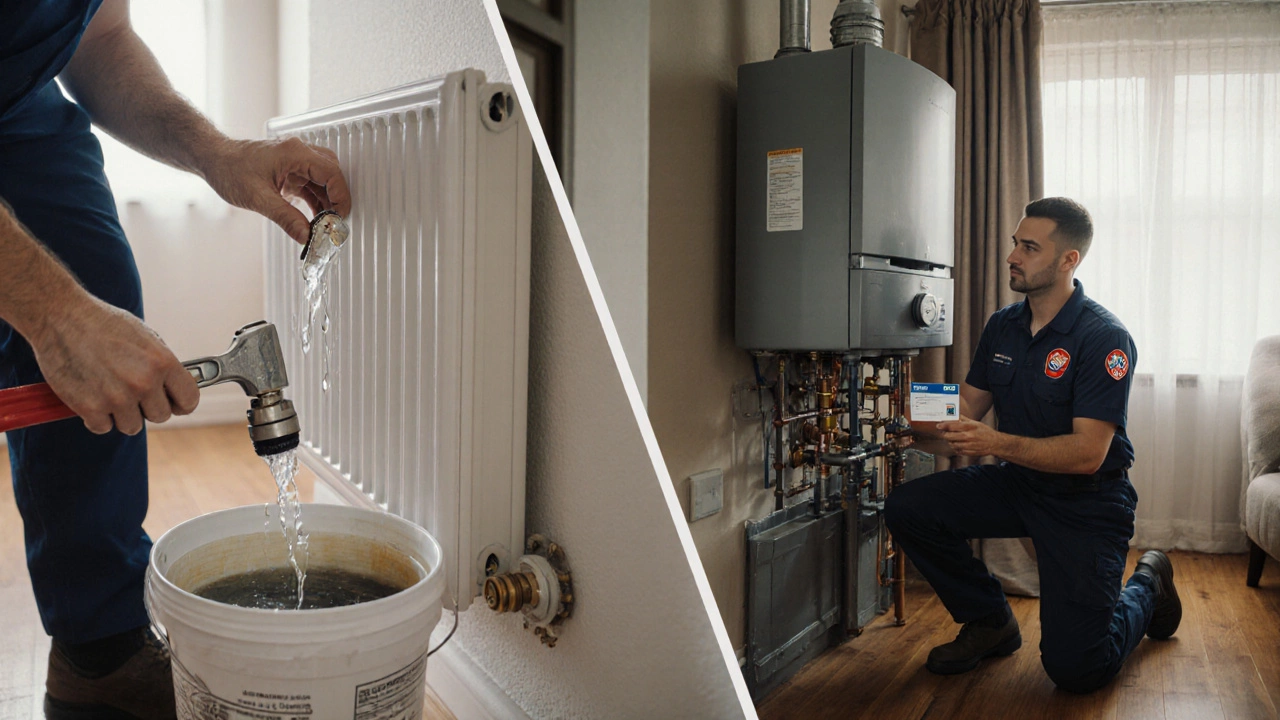
What happens if you hire an unqualified person
The risks aren’t theoretical. In 2024, the Health and Safety Executive reported over 200 cases of carbon monoxide poisoning linked to poorly installed or maintained boilers. Many were done by unqualified workers. Carbon monoxide is silent, colourless, and deadly. One faulty flue connection can kill.Insurance won’t cover damage caused by unregistered work. If your boiler explodes-or leaks gas and causes a fire-your home insurance will likely deny the claim. You’ll be stuck paying for repairs, replacement, and possibly legal liability.
Even if nothing goes wrong, you’ll void your boiler warranty. Most manufacturers require annual servicing by a Gas Safe engineer. Skip that, and your 10-year guarantee vanishes.
When you should call a plumber vs. a boiler engineer
Here’s a simple rule:- Call a plumber if the problem is outside the boiler: leaking pipes, dripping taps, blocked drains, or radiator valves.
- Call a Gas Safe boiler engineer if the boiler isn’t heating, making strange noises, showing error codes, or if you smell gas.
If you’re unsure, call the boiler engineer first. They can tell you if it’s a plumbing issue or something deeper. Most offer free diagnostics.
What to expect when you book a boiler service
A proper boiler service takes about an hour. The engineer will:- Turn off the boiler and isolate the gas supply.
- Check the gas pressure and flue gas composition.
- Inspect the heat exchanger for cracks or corrosion.
- Test the thermostat, pump, and pressure relief valve.
- Clean the burner and ignition system.
- Check for carbon monoxide leaks with a detector.
- Issue a Gas Safe service certificate.
You should get a written report. If they don’t give you one, ask for it. It’s part of the service.
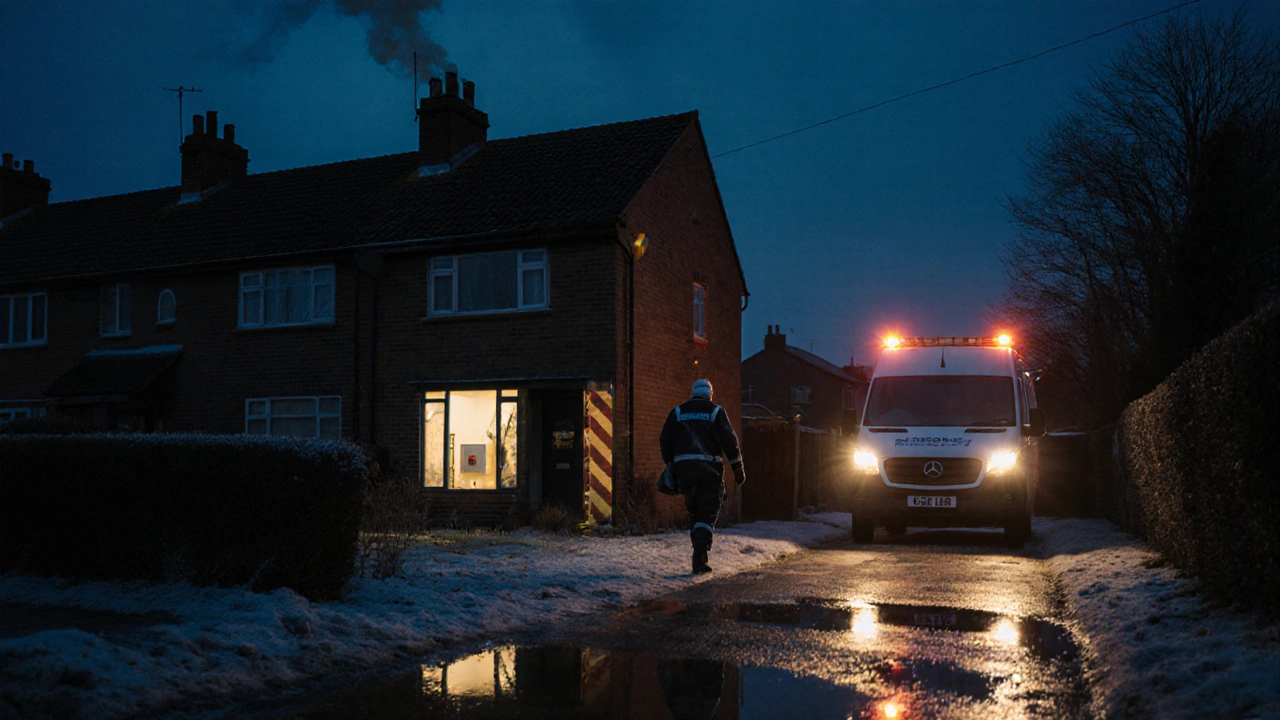
How much does a boiler repair cost?
Prices vary by region, boiler brand, and complexity. In Bristol, a standard service costs between £70 and £100. Emergency callouts on weekends or holidays can be £150 or more.Repairs range from £120 for a simple thermostat replacement to £500+ for a new heat exchanger. If your boiler is over 10 years old, it’s often cheaper to replace it than fix it. A new A-rated boiler costs £2,000-£3,500 installed, but you’ll save £300-£500 a year on bills.
Don’t go for the cheapest quote. Go for the one with proof of certification and a 12-month guarantee on parts and labour.
What to do if your boiler breaks down
1. Turn off the boiler at the wall. Don’t just turn the thermostat down.2. If you smell gas, open windows, leave the house, and call the National Gas Emergency Service on 0800 111 999. Do not turn lights on or off.
3. Check the boiler display for error codes. Write them down.
4. Call a Gas Safe engineer. Don’t wait.
5. If you’re renting, notify your landlord immediately. They’re legally responsible for gas safety.
Prevent problems before they happen
Boilers last 10-15 years with proper care. Here’s how to stretch that:- Get an annual service-don’t skip it.
- Check the pressure gauge monthly. It should be between 1 and 1.5 bar.
- Bleed your radiators every autumn.
- Install a magnetic filter to catch sludge.
- Don’t turn the thermostat up to max. It stresses the system.
Most boiler failures happen because of neglect. A £90 service every year can save you £1,000 in emergency repairs.
Can any plumber fix my boiler?
No. Only plumbers who are also Gas Safe registered can legally work on gas boilers. Many plumbers work on water pipes and radiators, but if the issue is inside the boiler-like a faulty ignition or gas valve-you need a certified heating engineer.
How do I know if my engineer is qualified?
Ask to see their Gas Safe ID card. It has their photo, registration number, and the appliances they’re certified for. Then verify it online at the Gas Safe Register website. Never accept a business card or verbal promise.
Is it cheaper to fix or replace my boiler?
If your boiler is under 10 years old and the repair cost is less than half the price of a new one, fixing it makes sense. If it’s older, frequently breaking down, or inefficient (like a G-rated model), replacing it saves money in the long run through lower energy bills.
What should I do if I smell gas near my boiler?
Turn off the gas supply at the meter if it’s safe to do so. Open windows, leave the house immediately, and call the National Gas Emergency Service on 0800 111 999. Do not use phones, switches, or anything that could spark. Gas leaks can cause explosions.
Do I need a boiler service every year?
Yes-if you want your warranty to stay valid and your boiler to run safely. Most manufacturers require an annual service by a Gas Safe engineer. Skipping it can void your guarantee and increase the risk of breakdowns or carbon monoxide leaks.

